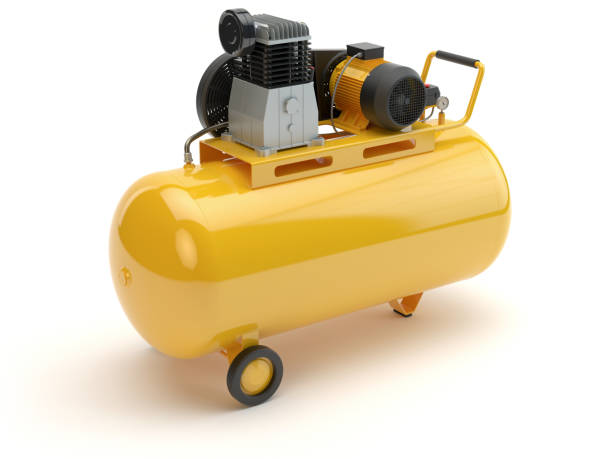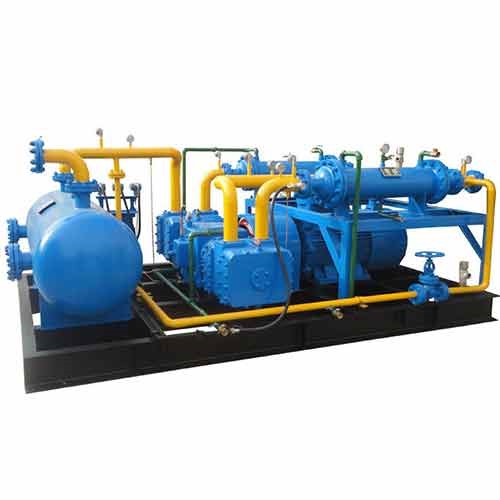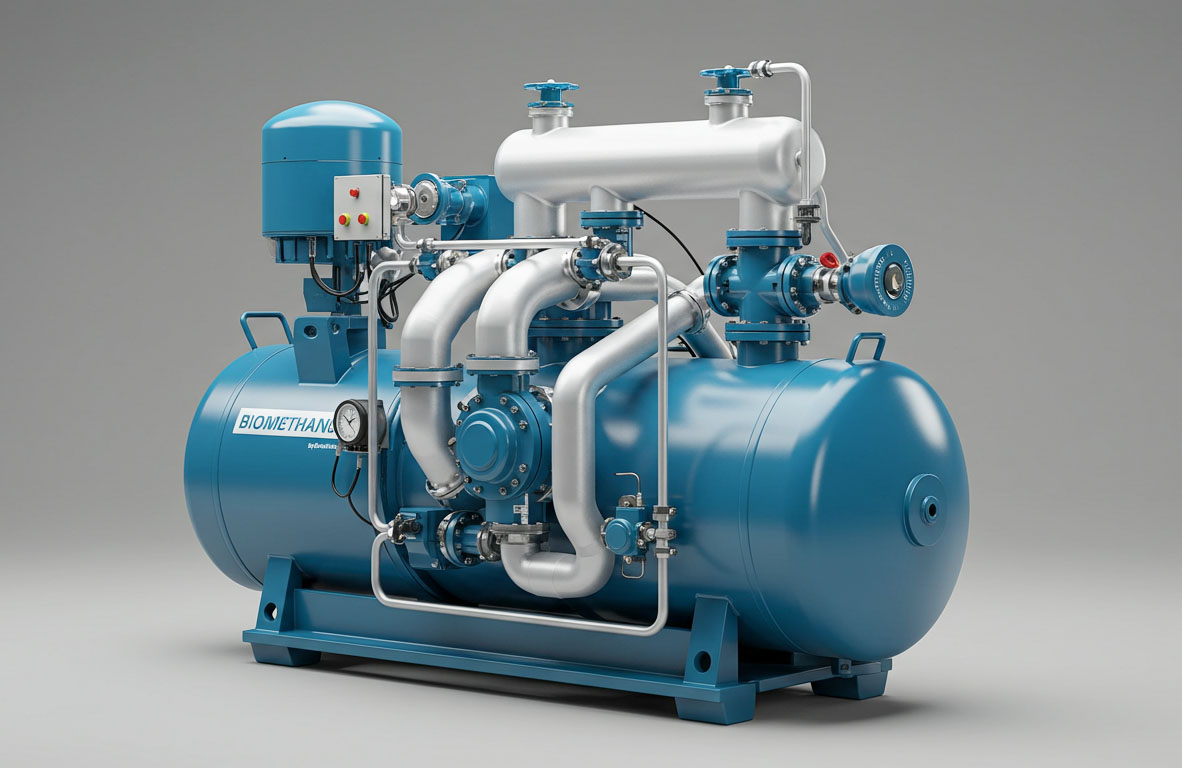What are the applications of nitrogen compressor?
Revealing the World of Nitrogen Compressors: The Power of Purity
When it comes to industrial gases, nitrogen is king. This inert, colourless, and odourless gas is essential for a myriad of processes, including metal manufacture and food preservation. However, how can we maximize the potential of this plentiful substance? Presenting the nitrogen compressor, a dependable tool that provides compressed nitrogen for various industrial applications.
An in-depth discussion of nitrogen compressor types, features, and applications in a range of sectors is provided in this article. To help you choose the ideal nitrogen compressor for your requirements, we’ll also go over important factors to take into account.
The Benefits of Nitrogen: Why Select a Nitrogen Compressor?
Nitrogen is king in the industrial world. This inert, colourless, and odourless gas is essential for many processes, including metal shaping and food preservation. However, how do we use its power? Presenting the nitrogen compressor, a dependable tool that provides compressed nitrogen for various industrial applications.
Why is nitrogen used? Why This Time?
Because of its special qualities, nitrogen is a highly useful industrial gas.
- Champion of Inertia:
Nitrogen inhibits undesirable chemical processes and oxidation by not easily reacting with other elements, in contrast to oxygen.
- Purity Powerhouse:
Separating compressed air yields a pure, inert gas source that is ideal for your particular requirements.
- Prioritizing safety:
Nitrogen provides a safe working environment for a variety of applications since it is non-toxic and non-flammable.
- Flexibility Is King:
Because of its many different qualities, nitrogen can be used in a variety of industrial processes, such as metal manufacturing and food packing.
The Advantages of Nitrogen Compressors: Going Beyond Purity
Nitrogen compressor is superior to other nitrogen-collecting systems in several ways.
- Production on Demand:
Produce nitrogen on demand, removing reliance on outside vendors and supply timetables.
- Cost-Effectiveness:
Lessen your dependency on gas cylinders that are already full; this could save you a lot of money over time.
- Consistent Quality:
Make sure your processes have a dependable gas source and keep control over the purity of your nitrogen.
- Scalability:
Select a compressor size that can grow to accommodate your expanding needs while still meeting your present needs.
You can decide whether or not to use nitrogen compressor in your operations by being aware of the advantages of nitrogen and nitrogen itself. We provide a variety of these compressor options to suit your requirements.
Unveiling the Technology: Different Types of Compressors for Nitrogen
Nitrogen gas is always needed in a variety of sectors. However, how can we convert easily accessible air into the clean, compressed nitrogen that is needed for so many different processes? Here comes the nitrogen compressor, a versatile workhorse that may be used in a variety of ways. The most prevalent kinds are broken down as follows:
- The Well-Tried: Reciprocating Compressor for Nitrogen:
In this conventional configuration, air is compressed by a piston that moves inside a cylinder. High-purity nitrogen is produced when the air is compressed and separated to exclude oxygen and other gases. Reciprocal compressors are dependable, but they may require more upkeep than some contemporary alternatives.
- Screw Nitrogen Compressor: The Modern Maestro
This creative design compresses air by using helical screws that are intermeshed. Compared to reciprocating types, these compressors provide constant airflow, improved efficiency, and smoother operation. This means that operations will be quieter and possibly use less energy.
- Cryogenic Nitrogen Generator: The Ultra-Pure Choice
This method liquefies air by using extremely low temperatures. A distillation procedure is then used to separate the liquefied air into its constituent parts, which are mostly nitrogen, oxygen, and argon. Applications requiring the highest level of purity might benefit greatly from this approach, which yields the purest nitrogen gas.
Beyond the Fundamentals:
Although producing compressed nitrogen is still the primary function, each type of compressor has unique benefits and things to keep in mind. Selecting the best choice is influenced by things like:
- Necessary Nitrogen Flow Rate:
Take into account how much nitrogen your application requires in a given amount of time.

- Desired Purity Level:
The purity of nitrogen must vary depending on the application. For applications needing the highest level of purity, cryogenic generators are the solution while reciprocating and screw compressors may be appropriate for others.
By being aware of these many nitrogen compressor types, you may choose the best option for your particular requirements with knowledge and confidence.
Above and Beyond: Crucial Elements of a Nitrogen Compressor
Although nitrogen compressor may appear to be complicated devices, you can better appreciate how they work if you know what makes up their essential parts. Now let’s examine the main actors coordinating the pressured nitrogen production process:
- Compression Unit, the system’s key component
It is this workhorse that is in charge of drawing in air and raising its pressure. Depending on the type of compressor (screw, reciprocating, etc.), the specific design changes. Screw compressors use intermeshing screws to create compression, whereas reciprocating compressors use pistons.
- The Air Separation Unit (ASU) is the purifier
Pure nitrogen isn’t what compressed air is. The targeted high-purity nitrogen is retained in the compressed air stream after the ASU removes oxygen and other undesirable gases. Membrane separation and Pressure Swing absorption (PSA) are two common separation technologies utilized in ASUs.
- Cooling Off:
Aftercooler Air warms up when it is compressed. A key component in lowering this heat is the aftercooler, which is frequently a heat exchanger that uses air or water. Reducing the temperature guarantees effective functioning and prolongs the compressor’s lifespan.
- The Storage Tank: Nitrogen Vault
The purified nitrogen gas is kept in this pressure vessel, which serves as a reservoir and is ready for use in a variety of applications. The anticipated nitrogen demand and flow rate determine the storage tank’s size.
- The Mastermind:
Control Structure Electronic control systems are a common characteristic of contemporary nitrogen compressors. To ensure effective and secure functioning, these systems monitor and control several factors, including temperature, pressure, and purity levels.
The Parts of a Symphony:
- Every element is essential to the process of producing nitrogen. The first push comes from the compressed air unit, the mixture is refined by the ASU, cooling is maintained by the aftercooler, nitrogen is stored in the storage tank, and a control system makes sure everything goes according to plan.
- Gaining a greater grasp of the technology underlying nitrogen compressors through comprehension of these essential elements enables you to make well-informed decisions about maintenance, troubleshooting, and even selecting the best compressor for your particular requirements.
The Power of Purity: Applications of Nitrogen Compressors
Because it is non-reactive and inert, nitrogen is a major industrial resource. But what practical uses does this invisible gas have? The nitrogen compressor is a device that converts easily accessible air into a nitrogen stream under pressure, which is then used to power several industrial operations. Let’s examine a few of the most important uses for these compressors:
- Food and Beverage Preservation:
Oxidation is the enemy of freshness, and nitrogen gas protects food and beverages from it. Nitrogen replaces oxygen in food packaging, prolonging the shelf life of packaged goods and drinks and preventing spoiling.
- Pharmaceutical Manufacturing:
When producing pharmaceuticals, it’s critical to keep a sterile atmosphere. Nitrogen ensures product purity and keeps sensitive pharmaceuticals from being contaminated by creating an inert atmosphere for a variety of processes.
- Metal Fabrication:
Nitrogen is essential to metalworking, from laser cutting to welding. When used as an inert gas, it keeps high-temperature processes from oxidizing, producing clean, excellent cuts and welds.
Unwanted chemical interactions can have disastrous effects in the complex realm of chemical processes. To provide safe and effective chemical processing, nitrogen acts as a purge gas, moving fluids and stopping these undesirable reactions.
- Manufacturing of Electronics Has a Bright Future:
An immaculate environment is necessary for sensitive electrical components. For their manufacturing and storage, nitrogen produces an inert atmosphere that inhibits oxidation and guarantees the dependability of these fragile components.
- Fuelling the Industry:
Gas and Oil: Nitrogen has a variety of uses in the gas and oil sector. To maintain safety and efficiency during different phases of exploration and production, it is utilized for good purging, pressure maintenance, and pipeline inserting.
- Medical marvels:
Cryotherapy is a medical technique that uses extremely cold temperatures for therapeutic purposes. Some nitrogen compressor systems produce liquid nitrogen, which is used in cryotherapy.
We can better appreciate nitrogen compressors’ effects on different industries if we are aware of their wide range of uses. Nitrogen compressor is quietly operating in the background, driving the need for purity and regulated environments, from maintaining the freshness of our food to influencing the direction of electronics in the future.
Conclusion:
We have examined the types, uses, parts, and upkeep requirements of nitrogen compressor by diving into this field. For all of your compressor requirements, LEIYAO Compressor still your reliable partner. Speak with our staff right now to go over your needs and locate the best nitrogen compressor to fuel your success!


